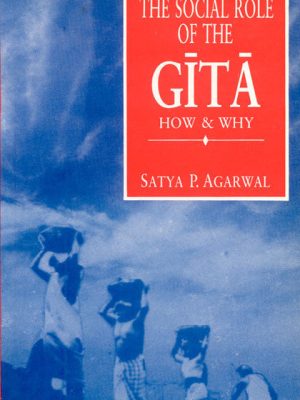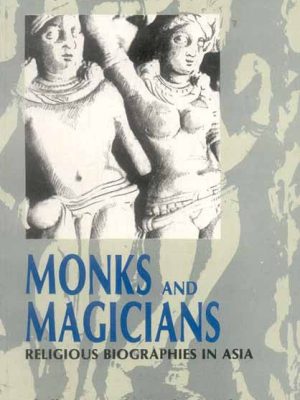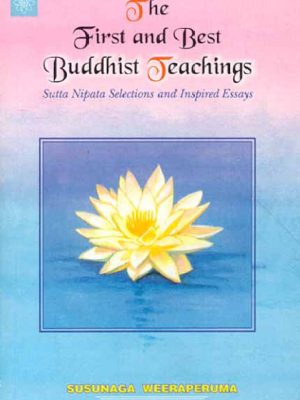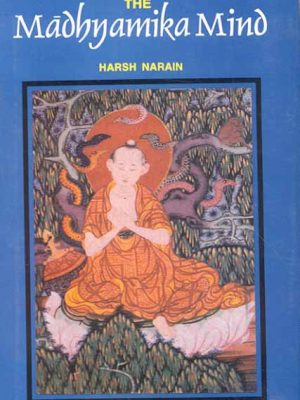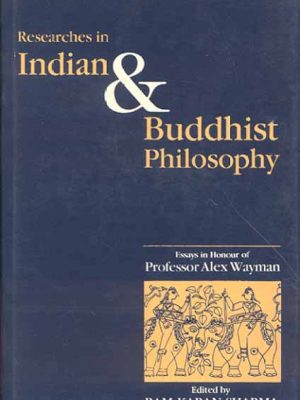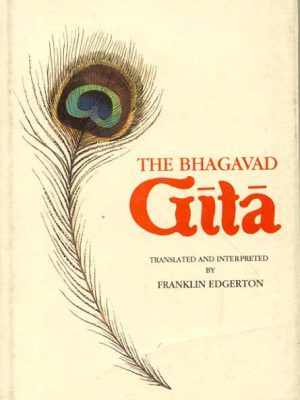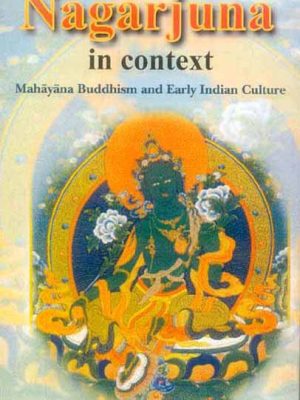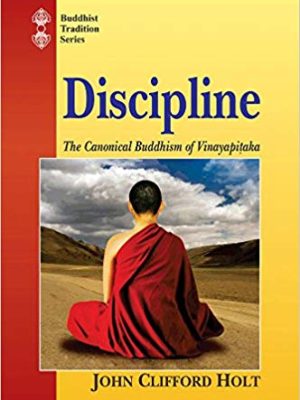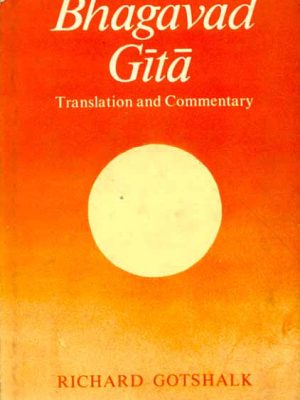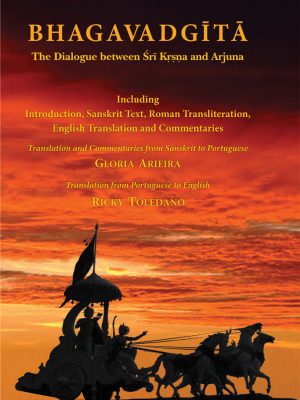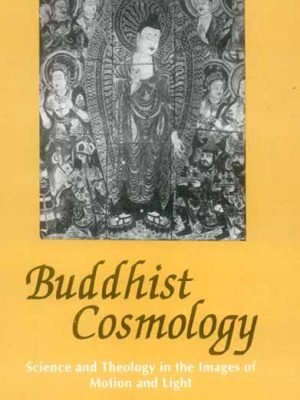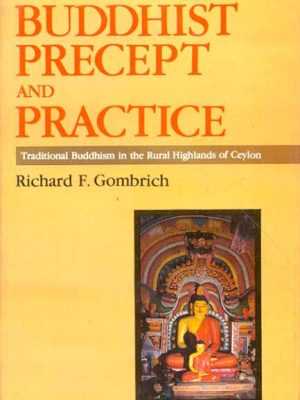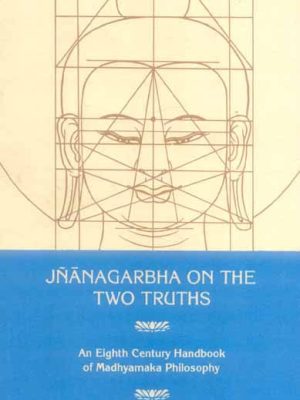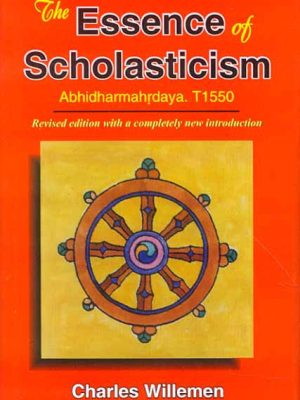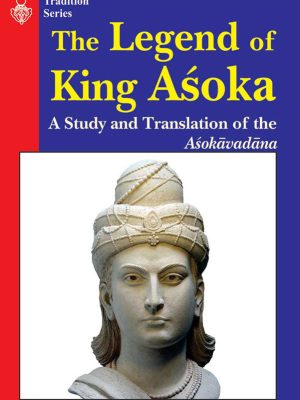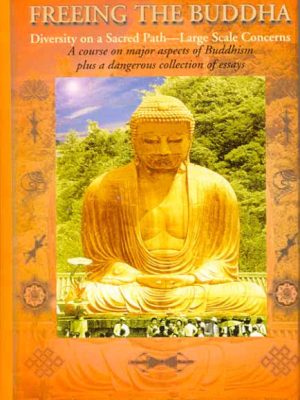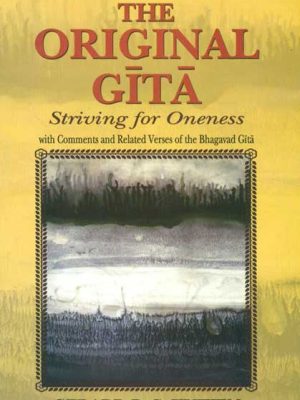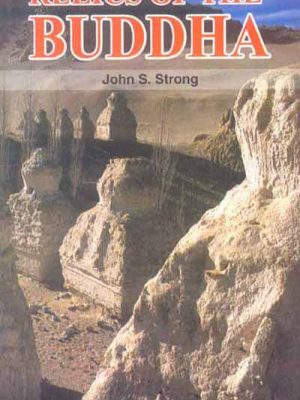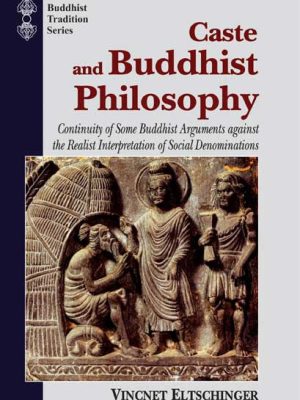Bhagavad Gita
-
The Social Role of the Gita: How and Why
Although the Bhagavad-gita has traditionally been regarded as a poem of primarily religious significance, Dr. Agarwal shows that with the proper interpretation its message may be ransformed into a set of practical ethical guidelines. This practical aspect of the Gitaês teaching, its insistence that involvement with the world is an ethically correct function of human behaviour, is the focus of this book. That involvement with the worldês is expressed by the term ‘Lokasamgraha’. The term covers a multitude of social and political forms of behaviour and attitudes of mind and is perhaps more central to the meaning the Gita should have for modern man than its traditional other-worldly interpretation.
Dr. Agarwal has examined the various ways in which India has reacted to the impact of many powerful foreign influences over the past two centuries. He has done so by studying the lives and the activities of select Hindu thinkers who through their writings and their ways of life showed their awareness of a need to preserve an Indian identity. All of them undertook to define these differences and thus established their views on what might be acceptable alternatives for India and the Indian genius vis-a-vis those principles and customs that run counter to the Indian tradition. But they were not unanimous in either their conclusions or the strategies they devised for attaining their common goal. The author has concentrated on the role the Bhagavad-gita has played in the lives and works of these thinkers.
Review(s)
About the Author(s)
Dr. Satya P. Agarwal is a Social Scientist. His academic honours include five gold medals and numerous merit scholarships and research fellowships at various universities. The Governor of the State of Maryland conferred upon him “The Governor’s Citation”, in recognition of his pioneering books as also his contribution to social service. He is author of several books besides the present one which are widely acclaimed and appreciated by the discerning readers. Other honours conferred on him include: (i) Kunti Goyal International Award, (ii) Special Award of Manas Sangam and (iii) International Tulasi Award.
₹395.00 -
-
Bhagavad Gita (2 Vols. in One)
To most Visnuites, and to most Hindus, the Bhagavad Gita is what the New Testament is to Christians. It is their chief devotional book, and has been for centuries the principal source of religious inspiration for many millions of Indians. In this two-volume edition (bound in one), Volume I contains on facing pages a transliteration of the original Sanskrit and the author’s close translation. Volume II is Edgerton’s interpretation in which he makes clear the historical setting of the poem and analyzes its influence on later literature and its place in Indian philosophy.
₹495.00 – ₹995.00Bhagavad Gita (2 Vols. in One)
₹495.00 – ₹995.00 -
The Legacy of Yoga in Bhagawad Geeta: The Classical Text of Srimad Bhagawad Geeta in Skt, its Romanized transliteration, Eng Translation, Lucid Commentary and Indexes
The Geeta is an intimate dialogue between God and man. The God-incarnate is Lord Krishna and man is represented by the Mahabharata hero Arjuna. It is intimate because the esoteric wisdom imparted therein, says the Lords, is “is more secret than secrecy itself” (XVII. 63).
A great battle is to ensue between the two royal clans of Kauravas and Pandavas. Arjuna requests
Krishna, who is acting as his charioteer, to take him between the two standing armies so that he
may have a look at those who have gathered to fight with him. There Arjuna is overcome with grief and refuses to raise his bow against his respected gurus and elders, and other kith and kin. At this critical juncture Lord Krishna explains to him what is right and what is wrong, and how by adhering to dharma a person can earn the highest virtue.
Every human heart is like a battlefield of good and evil forces. At times a person is not able to
decide the right course of action. He is deluded and confused. When confronted with such a
situation, he can turn to the Geeta, it will not fail him. The book therefore is of universal appeal which offers satisfactory solution to basic human problems. Whatever page you turn, and whichever verse you read, it is bound to elevate and inspire. It is not the book of a particular race or religion but the common heritage of the entire mankind.
The general theme of the dialogue is the realization of the Supreme-Self through the constant practice of Yogic entity. Sri Krishna declares that those who strive, endowed with the spirit of selfless action, Yajna and Yoga, perceive the Lord dwelling in the self. Sri Krishna gives a
definite promise of His grace in the words, “Resigning all the Dharmas, seek refuge in Me
alone. I shall liberate you from all sins Grieve not.”
Review(s)
The explanations of verse are elaborate and elegant … . Laced with inspiring anecdotes, it is a remarkable commentary which will enlighten the learned as well as the laymen, in India and also in foreign lands. – BALDEO SAHAI Fellow, Indian National Science Academy
Mrs. Prabha Duneja has presented the universal and timeless message of The Bhagawad Geeta in a scholarly yet practical way. – Swami Prabuddhananda, Vedanta Society of Northern California, USA
The Legacy of Yoga in Bhagawad Geeta is a unique scholarly achievement and one, which will greatly benefit all who encounter it. I heartily recommend it. – Prof. Norris W. Palmer, Ph.D. Saint Mary’s College of California, USA
From the moment, I picked up Prabha Duneja’s translation of The Bhagawad Geeta, I knew this was an inspired work. Not only is her rendition an academic contribution in clear English but it retains the power of the original Sanskrit. – Prof. Sujan Burgeson Ph.D., Yuba College, California, USA
About the Author(s)
Founder and president of the Geeta Society, is also an active member of the Women’s Federation for world peace and the United Nations Association, USA. She is also the chairwoman of the Women’s Interfaith Circle of Service/CC-URI and a recipient of the Global Citizen award, given by UNA-the Commonwealth Club San Francisco, the Parliament of World’s Religions, schools, universities, churches, mosques, and interfaith conferences.
Mrs. Duneja, a graduate from the Sanskrit University of Kurukshetra, is a well-known Vedic scholar and a devotee of Lord Krishna. She is the author of the Legacy of Yoga in Bhagawad Geeta, Mantra and the Modern Man, Bhagawad Geeta: The Gospel of Timeless Wisdom, and has also recorded several series of lectures on the science of yoga and meditation, the secret powers of mantra, and the Bhagawad Geeta. For more information visit her website: holygeeta.org and contact her at duneja@aol.com
₹500.00 -
Bhagavad Gita (Richard Gotshalk): Translation and Commentary
The Bhagavad Gita is a dramatic poem which forms a small part of the great epic, the Mahabharata. The poem is the dialogue through which Arjuna’s doubts are resolved by Krsna’s teaching about the nature and place of action in the ultimate reality of things. The present translation is supplemented by a commentary; both seek to emphasize how the teaching is rooted in the concrete situation, and how its order and structure reflect the changing condition of the conversants and the purpose of the conversation. Footnotes and notes are included to clarify the Sanskrit, to indicate alternative translations, and to note relevant comments from other commentators and translators.
Review(s)
About the Author(s)
₹500.00 -
Bhagavad Gita: The Dialogue between Sri Krishna and Arjuna: Including Introduction, Sanskrit Text, Roman Transliteration, English Translation and Commentaries
Fraught with feelings of self-doubt and hopelessness, a great warrior collapses in self-defeat, posing questions for his charioteer, just before the immense battle begins on the plain of Kuruksetra. It is as if there was an interruption of the epic story of the Mahabharata, which pauses dramatically for the dialogue between the teacher, Sri Krishna, and his disciple, Arjuna, which is known as the Bhagavad Gita. This dialogue has been handed down as part of the oral Vedic tradition in an unbroken line of knowledge for more than 5000 years. And despite such antiquity, Arjuna’s questions remain just as relevant today, because the human sense of insufficiency and desire for fulfillment are timeless. Fortunately for Arjuna and all of us, the solution is also timeless. Sri Krishna teaches him the knowledge about the ultimate truth of the Self, the essential nature of the human being, covering the topics of dharma (appropriate action to fulfill what must be done) and yoga (to do so unmoved by the results of such action) while keeping a vision of Isvara (the Cause and the Order that is the Universe) to attain moksha, final liberation from the human sense of limitation. With an unwavering dedication to the original Sanskrit and the tradition of Advaita Vedanta, Gloria Arieira unfolds the beauty and clarity of the message that is the Bhagavad Gita the very knowledge of the Self that removed Arjuna’s confusion, allowing him to rise to his feet once again.
Review(s)
About the Author(s)
GLORIA ARIEIRA studied Vedanta, Sanskrit, Vedic chanting, and meditation in India between 1974 and 1978, under the guidance of Swami Dayananda Saraswati, at the Sandipani Sadhanalaya ashram in Mumbai, and in two other ashrams in Rishikesh and Uttarkashi. Her pilgrimage has led her throughout the years to several temples and holy sites around India, including Gomukh, Gangotri, Badrinath ãthe cavern where Vyasa wrote the Mahabharata ãand Jyoshimath, the center for study founded by none other than Sri Sankara himself. For more than 30 years, she has taught Vedanta and Sanskrit regularly at her center for Vedic studies, Vidya Mandir, in Rio de Janeiro, and other institutes throughout her native Brazil in Portugal. She has translated and published many books on Vedanta into Portuguese.
₹500.00 – ₹700.00 -
The Original Gita: Striving for Oneness with Comments and Related Verses of the Bhagavad Gita
We live in a world that functions by seeming ‘dualism’, a perspective that keeps us in bondage. In this book, dualism is addressed and shown to be illusionary, since every pair of opposites implies a third element: the notion of a difference implied by both opposites.
The Original Gita, which predates the Bhagavad Gita, focuses on the basic philosophical and practical essentials of life and living. Here dualism is addressed and shown to be illusionary, since every pair of opposites implies a third element: the notion of a different implied by both opposites. The discussion of what is an ever-present ‘difference’ in such a triunity and how it impacts everything we perceive is pivotal to awakening to a new dimension of observation. It is in the unseen difference that we become aware of opposites, such as long-short, day-night, true-false.
In the first part of the book, the questions-What is thought? What is space-time? What is life-death? – are examined in concise form to give a foundation for the understanding of the philosophy of the Gita. Using this basis of Eastern wisdom, the author comments on the 209 verses of The Original Gita, and a Sanskrit-to-English translation is given of the related 319 verses in the classic Bhagavad Gita that correspond to these verses; these 319 verses can therefore be considered as the core of the Bhagavad Gita. There is no reference in The Original Gita to the battle fought by the Bharatas, nor is there support for the caste system, which were interpolations added later to the Bhagavad Gita. The book includes a glossary for clarification of a number of germane Sanskrit terms, a bibliography, and an index.
Review(s)
About the Author(s)
Dr. Gerard D. C. Kuiken received his Ph.D. from the Delft University of Technology, where he lectured in the fields of fluid mechanics and thermodynamics. He is the author of Thermodynamics of Irreversible Processes: Applications to Diffusion and Rheology, published by John Wiley & Sons. He has studied yoga since his youth, and resides in both The Hague in The Netherlands, and Santa barbara in California, USA.
₹600.00 -
